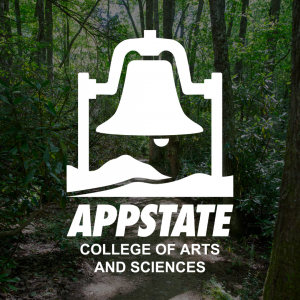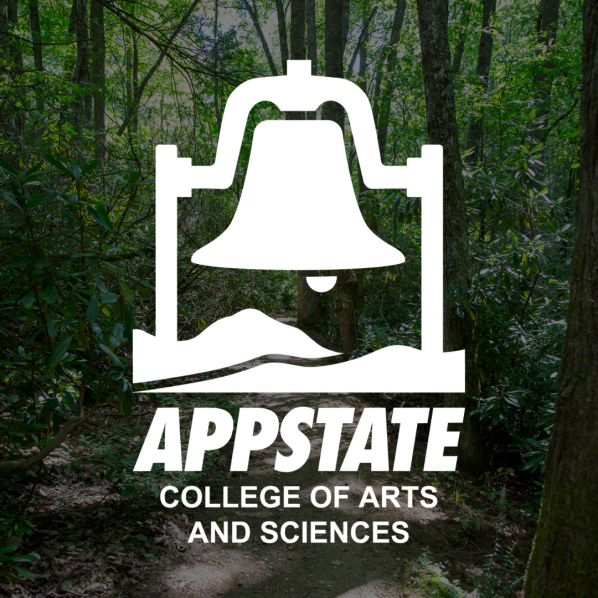BOONE, N.C. — Following months of work, improvements to Appalachian State University's Nature Preserve are nearly complete. The efforts, supported by Appalachian's College of Arts and Sciences (CAS), included maintenance to reduce erosion, improve drainage, and add signage along the trails.
Dedicated as a State Natural Area in 1999 through the North Carolina Nature Preserves Act, the Nature Preserve consists on 67 acres of protected woodlands located at the heart of App State's campus. The Preserve, which is monitored by App State's Department of Biology, is the largest contiguous forested area within the Town of Boone boundaries.
The mixed hardwood forest and herbaceous community are representative of southern Appalachian flora and provide a home for hundreds of native species. Most of the forest is secondary growth that has recovered from historic deforestation. The preserve contains two headwater streams. These small, spring-fed creeks feed a main channel that flows from north to south and ultimately lead to the South Fork of the New River.
The Preserve entrance is located at the Greenwood Parking Lot on Bodenheimer Drive. As a state-designated natural area, the Preserve has additional rules to ensure long-term protection of natural resources. Visitors are encouraged to enjoy the Preserve in a sustainable way by staying on the trails and avoiding camping, fires, and other disturbances of natural resources. Currently, trails are designated for hiking only and cycling and the operation of motorized vehicles is prohibited.
Students enrolled in the "Sustainable Trail System Management" course (RM 3535) assisted with the efforts to improve the trails in the Preserve under the guidance of Kristian Jackson, senior lecturer in App State's Department of Recreation Management and Physical Education.

Students in Kristian Jackson's "Sustainable Trail System Management" course (RM 3535) assisted with trailbuilding.
Destination by Design, a local economic development firm led by CAS alumnus Eric Woolridge '01 '11, and Benchmark Trails, Inc., a professional trail development firm located in Greenville, South Carolina, were the contractors on the project.
The Nature Preserve trails lead to the top of Bodenheimer Drive, the site of the future Innovation District. The first phase of the Innovation District project includes the development of faculty and staff housing, a zero-carbon district energy system, and the Conservatory for Biodiversity Education and Research. The Conservatory will advance knowledge surrounding the natural and cultural history of the Southern Appalachian region and build on existing opportunities offered by the Department of Biology.
"Hundreds if not thousands of faculty, staff, and students from across the university have used this area since it was established as a Nature Preserve back in 1999. The trails were pretty beat up from increased use and they desperately needed some attention. The trailwork has been great, and after another year of leaf fall it will look even better. These improved trails will tie in with the new Innovation District by connecting the Preserve with the new Conservatory," said Dr. Mike Madritch, dean of CAS.

Supported by the College of Arts and Sciences, the improvements to Appalachian State's Nature Preserve include maintenance to reduce erosion, improve drainage, and add signage along the trails.
To support the Conservatory for Biodiversity Education and Research, donate to the Department of Biology by visiting givenow.appstate.edu/biology or contact Jasmin McFayden '10, Director of Development for CAS, by email at mcfaydenja@appstate.edu or by phone at (828) 262-4019.
###
About the College of Arts and Sciences
The College of Arts and Sciences (CAS) at Appalachian State University is home to 17 academic departments, two centers and one residential college. These units span the humanities and the social, mathematical and natural sciences. CAS aims to develop a distinctive identity built upon our university's strengths, traditions and unique location. The college’s values lie not only in service to the university and local community, but through inspiring, training, educating and sustaining the development of its students as global citizens. More than 6,400 student majors are enrolled in the college. As the college is also largely responsible for implementing App State’s general education curriculum, it is heavily involved in the education of all students at the university, including those pursuing majors in other colleges. Learn more at https://cas.appstate.edu.
About the Department of Biology
The Department of Biology is a community of teacher-scholars, with faculty representing the full breadth of biological specializations — from molecular genetics to landscape/ecosystem ecology. The department seeks to produce graduates with sound scientific knowledge, the skills to create new knowledge, and the excitement and appreciation of scientific discovery. Learn more at https://biology.appstate.edu.
About the Department of Recreation Management and Physical Education
The Department of Recreation Management and Physical Education in Appalachian State University’s Beaver College of Health Sciences is an innovative, diverse and forward-thinking academic unit consisting of two undergraduate programs. The recreation management program prepares students for careers as professionals in three concentrations: commercial recreation and tourism management, outdoor experiential education, and recreation and park management. The health and physical education program prepares students for careers as K-12 health and physical educators, school-based activity directors and coaches. Learn more at https://rmpe.appstate.edu.
By Lauren Gibbs
February 14, 2024
BOONE, N.C.

